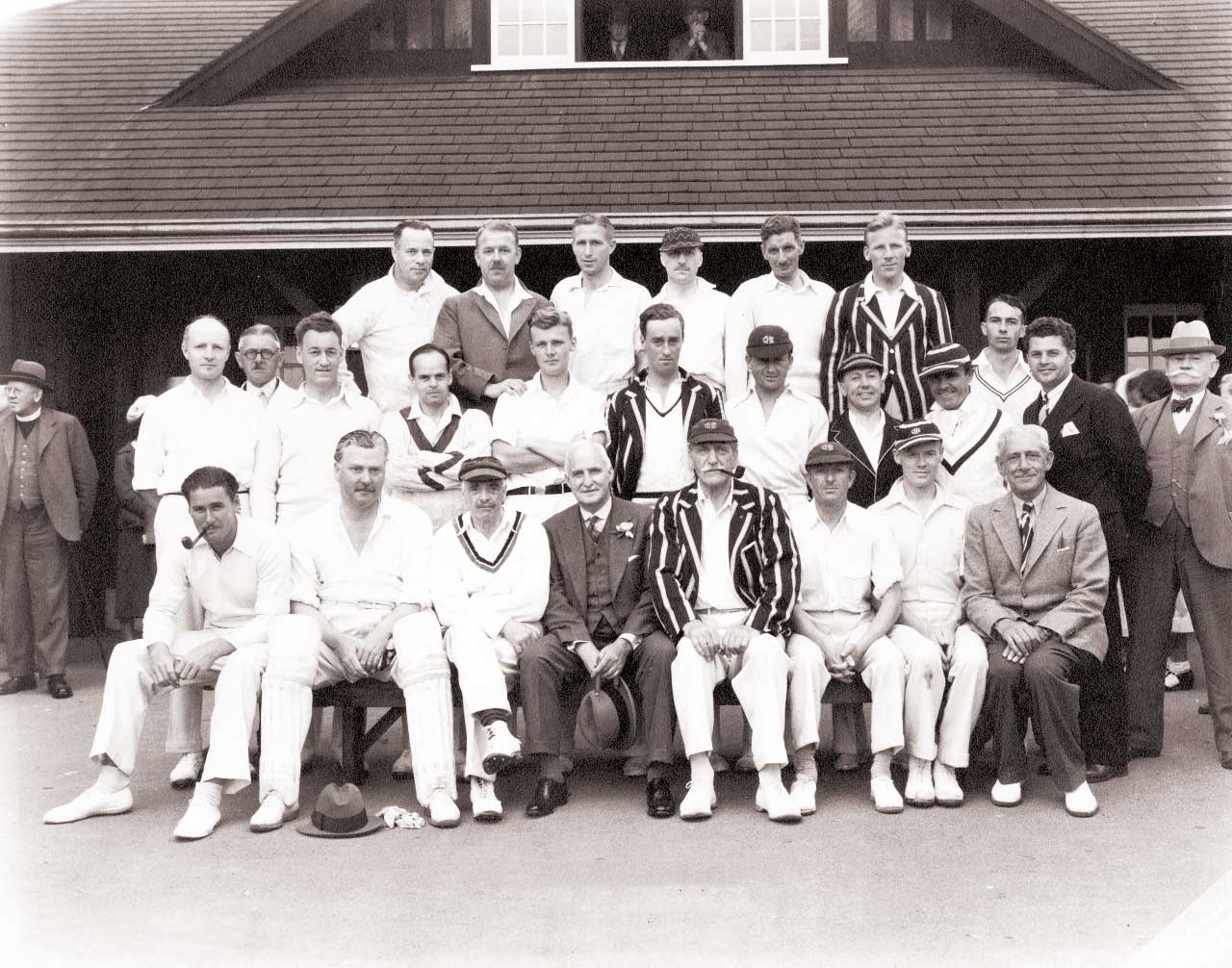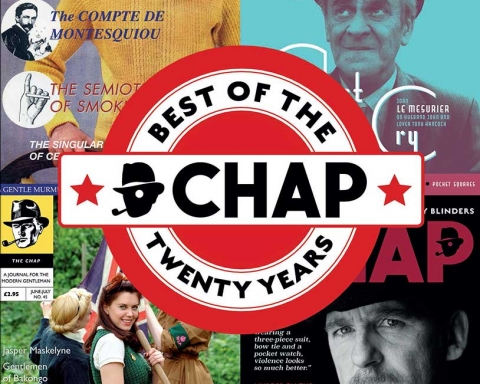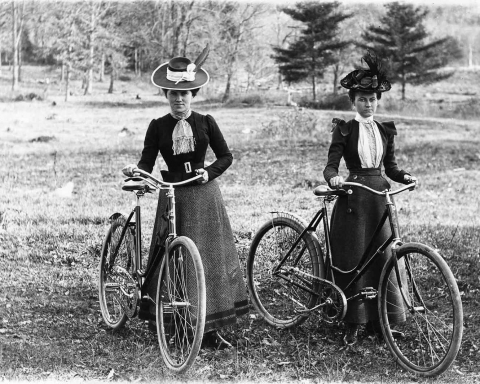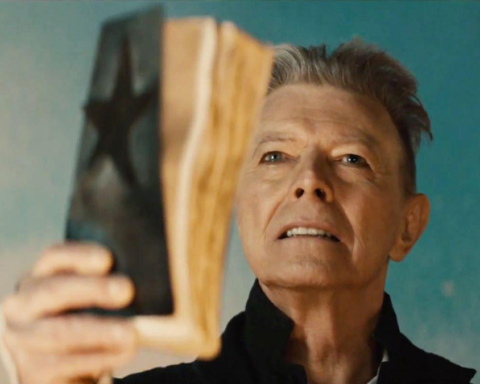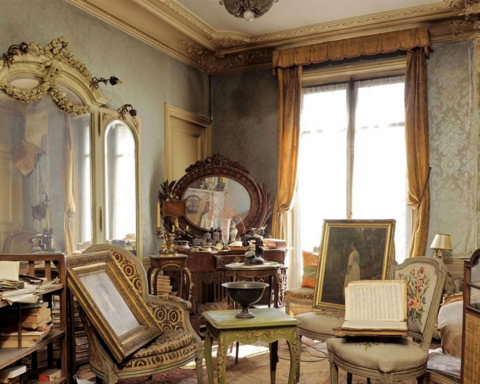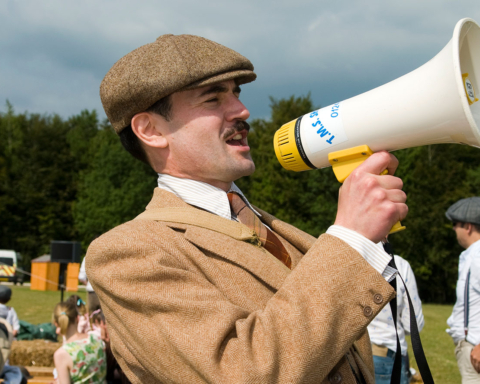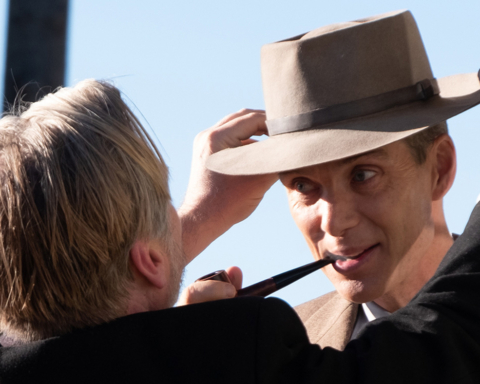Steve Pittard:
English actors were de riguer in American movies during the 1930s. The ‘Hollywood Raj’ formed their own cricket team, which boasted the likes of Leslie Howard, David Niven and Cary Grant. Starlets in the wings provided further glamour. Olivia De Haviland served cake and cucumber sandwiches while Elizabeth Taylor sold scorecards.

Hollywood Cricket Club was the brainchild of Sir Charles Aubrey Smith, a redoubtable craggy actor given to wearing baggy plus-fours – with Old Carthusian tassels at the knee – and loud checked socks. His stock-in-trade was archetypal Englishmen, often crusty colonels or benign authority figures. Whether reining in Bulldog Drummond or tackling Tarzan, Aubrey always played a straight bat. Back in 1889, Aubrey had captained England on his Test debut, taking 7 wickets for 61 runs to best the Boers. He was known as ‘Round The Corner Smith’ owing to his eccentric curved run-up, startling batsmen by suddenly appearing from behind the umpire.
As the 1932/32 Bodyline series raged, Smith set about bringing civilisation to California. His chosen corner of a foreign field was Griffith Park, near the Burbank film studios. He imported five cartloads of English grass seed to make a pukka pitch, and in 1933 the C. Aubrey Smith Field saw action. Aubrey resided in a villa near Mulholland Drive, crowned with a stout weather vane consisting of three stumps, bails and a bat. Aubrey insisted on raising a Union Jack every day, denoting a sort of semi ambassadorial status. With Smith’s dinner-jacket-in-the-jungle mentality, his trademark cricketing attire consisted of snowy flannels, straw boater and club blazer, in spiffing stripes of magenta, mauve and black.

At the inaugural meeting, PG Wodehouse took the minutes. Team selection cropped up and someone suggested “What about this Pratt fellow? He’s supposed to be pretty good at cricket.” Another chap countered, “Is he suitable do you think? He’s working as a truck driver after all, and with that face I’m not sure he’s even English.” Then a deep clearing of the throat revealed Pratt to be present, now going under his stage name of Boris Karloff. Karloff proved to be a decent wicketkeeper/batsman but was self-effacing: “I was a frightful duffer, but I tried very hard.”
Ronald Colman was elected club vice-president. The pencil-moustached matinee idol was a keen cricket buff. In the silent movie Dark Angel, Colman is supposedly uttering sweet nothings to Vilma Banky, but in reality is waxing lyrical about cricket to his oblivious Hungarian co-star.
David Niven was press ganged into practicing on an evening that he had set aside for ‘chasing some skirt’. Niven, an onscreen Raffles, had excellent cricket credentials – he’d taken a hat-trick against Eton – and recalled bowling endless overs under the baking Californian sun. The urbane Niven was all elegant strokes, while his housemate at ‘cirrhosis-by-the-sea’ Errol Flynn also batted in the manner of his screen persona. The swashbuckler would dance down the pitch, hit two sixes and be clean bowled next ball, whereupon he’d dash off to join the babes on his yacht.
Aubrey would twist the arm of any visiting thespians to bolster his troupe. When a young Laurence Olivier checked in at the Chateau Marmont, he found a missive awaiting him: “There will be nets tomorrow at 9am. I trust I shall see you there”. Olivier duly complied. He borrowed Karloff’s size 13 boots but floundered in the field, bemoaning the outsize boots must be the same pair Karloff wore for his role as Frankenstein’s monster.
Claude Rains made a cameo. He was given out LBW, and, echoing his famous line from Casablanca, departed with, “I’m shocked! Shocked!”. Sherlock Holmes and Dr Watson, AKA Basil Rathbone and Nigel Bruce, reprised their partnership. Sherlock’s sidekick belied his buffoonish image. Despite his backside peppered by eleven machine gun bullets at Cambria, courtesy of Fritz, Bruce was a most dependable batsman. He smoted sixes galore, embellished by doffing his fedora to the crowd.

England cricketers sometimes dropped by. ‘Gubby’ Allen knocked up a half-century but his technique didn’t cut any ice with Mary Astor: “I could tell he was a bowler by the way he batted.” Another ringer was the great CB Fry, still cutting the mustard at the grand age of 65. The sprightly all-rounder diplomatically took off his sweater, after he’d reduced the opposition top order to ribbons.
Hopalong Cassidy (William Boyd) was roped in after being assured cricket was played on similar lines to baseball. He stood at the crease, swinging his bat one-handed, as if wielding a bobby’s truncheon. The umpire politely asked him if he wanted centre, to which Hopalong retorted, “Start pitchin’”. After a couple of wild yahoos, the cowboy connected to good effect, hitting a skier in the deep. To the horror of the assembled English contingent, Hopalong hared off towards cover. After scampering a lap around the bemused infielders, he slid into his own wicket like a toboggan. All eyes were on the astonished Sir Aubrey, who exclaimed, “Well, I declare.”

Hollywood CC played various Los Angeles teams. Against Santa Barbara, an elderly batsman, sporting a Charterhouse tie, wended his way to the wicket. Smith immediately barked, “Spread the Field, chaps” but the old stager could barely nudge the ball off the square. When Aubrey, then 73, was later questioned on his tactics he replied, “Well I was his fag at Charterhouse and he used to hit the ball out the park.”
Sir Aubrey was a law unto himself. During a match against Bradman’s mob, he dropped a sitter and summoned his manservant to fetch his spectacles. Smith then muffed another dolly and studiously inspected his eyewear, exclaiming, “Egad, the damn fool brought my reading glasses.” The martinet refused to read or believe any of the Yank rags and would await copies of the Thunderer to arrive from England. The consequences often caused much mirth, such as when Aubrey expressed outrage at Hitler invading Poland, a fortnight after the event. However, at the 1945 club AGM, Sir Aubrey was less concerned about victory in Europe than the knotty problem of moles mauling the outfield. On one of Aubrey’s last trips to Blighty, the motion picture star was spotted in the Lord’s pavilion. A member remarked, “That man over there seems familiar”, to which his chum replied: “Yes. Chap called Smith… used to play for Sussex.”

